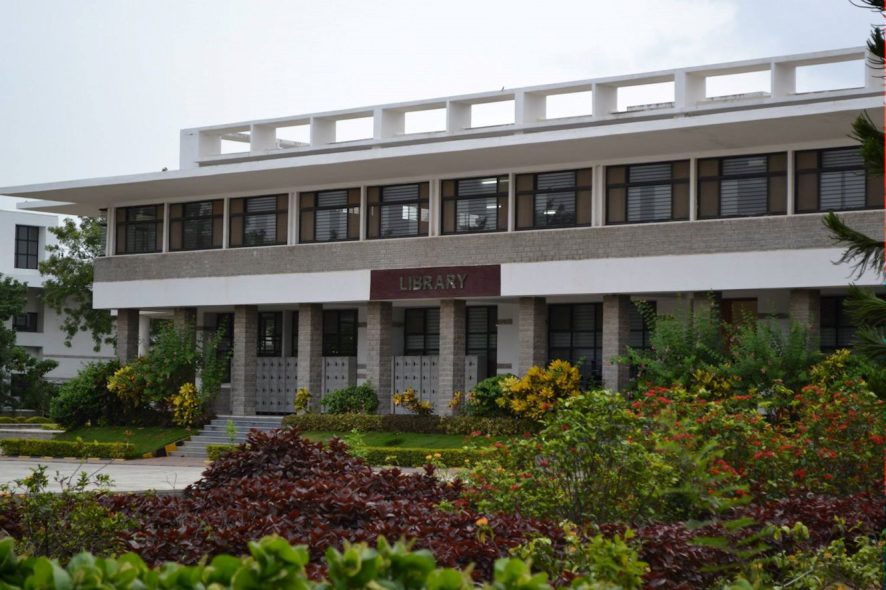NALSAR University of Law organized a one-day consultation on “Governance in Tribal Areas: Issues and Perspectives” at NALSAR University of Law, Hyderabad on January 20, 2017. While inaugurating the One-day Consultation, Chief Guest, Sri R. Laxman, Commissioner, Tribal Welfare Department, Government of Telangana opined that social equality without economic equality has no meaning and the efforts of the state is to secure economic empowerment of the tribals. In this regard, the newly formed State of Telangana have launched several programmes and schemes for the benefit of tribals. He further noted that ensuring mainstreaming of tribals is essential for their development and prosperity.
Hon’ble Shri Justice B. Prakash Rao, Former Acting Chief Justice of A.P. High Court was speaking as the Guest of Honour noted that despite the Constitutional mandate providing safeguards to the Tribal Community, the implementation of the same has failed miserably and opined that on many occasions the tribals have been treated as second grade citizens of the country. To ensure speedy redressal of their disputes, Justice Rao advocated for establishment of the Munsif Courts and advocated for establishment of State and National level Tribunals presided by the judges of the High Courts and Supreme Court respectively.
While welcoming the gathering, Prof. Dr. V. Balakista Reddy, Professor of Law and Registrar highlighted the socially relevant activities undertaken by the University in the recent past including the training of paralegal volunteers and community resource persons who in turn have resolved more than 1 million land related cases and issues in the State of Telangana and Andhra Pradesh. He also highlighted the legislative drafting work that the University is engaged in for both the said states.
Dr. VNVK Sastry, Retired Director, Tribal Cultural Research and Training Institute enlightened the audience on the spirit behind the existence of tribal welfare schemes which can be traced back to the Indian Constitution and Article 46 and the V & VI Schedule in particular which mandates the Government to take pro-active steps towards ensuring welfare and development of the members of the tribal community. He further discussed about the implementation of the PESA Act and the need to have complementary rules for effective implementation of the principle legislation.
Sri. Amar Singh Tilavath, Former Minister, State of Andhra Pradesh and National Working President, Akila Bharatiya Aadivasi Vikas Parishad highlighted the challenges faced by the tribal community like lack of basic transportation, communication and medical facilities in their areas and recommended for establishment of District Tribal Welfare Board which can effectively and expeditiously address these concerns. He appreciated the role of NALSAR for their efforts and contribution towards Putallubupathi village by providing pattas and other title deeds and IB Register certificates to as many as 70 tribal families of that village.
Sri. M. Sunil Kumar, Director, Land Laws and Policies, Landesa, India and Adjunct Professor & Advisor, NALSAR gave a brief about the background of the conference and described the sessions of the aforesaid consultation. He highlighted the urgent need to bring in necessary administrative and legal reforms to improve governance in tribal areas in order to protect the interest of the tribals. He further stated that if this is not taken as an urgent priority, there is a big threat to the life and property of the tribals residing in those areas.
The One-Day Consultation broadly focused on the below four issues:
1. Administration in Schedule Areas: Working of ITDAs – The gathering elaborately discussed the functioning of ITDAs and the administrative structures in the tribal areas. It was opined that the ITDAs have long unbroken history with more broken promises. It was felt that posting of committed officers, capacity building of officials working in schedule areas and necessary budgetary allocations can improve the system.
2. Land, Forest Governance and Dispute Resolution Mechanisms in Tribal Areas – Inspite of protective land laws more than 50 % of land and scheduled areas is in the hands of the non-tribals and majority of LTR cases have gone in favour of non-tribals. The implementation of the Forests Rights Act is still a unfulfilled task. The dispute resolution mechanism in this area is uncertain, weak and inaccessible to the tribal communities. The participants of the consultations strongly felt that the adjudication powers should be conferred to the judicial courts and the traditional systems of dispute resolution should be strengthened.
3. Traditional Institutions of Governance and implementation of PESA – Inspite of a mini-constitution (Panchayats Extension to Scheduled Areas (PESA)) within the constitution enacted to empower the tribal communities still not materialised on ground. The participants strongly felt that PESA should be implemented in its letter and spirit and relevant changses should be brought in all other legislations in order to give way to PESA.
4. Tribal Rights and Entitlements –Education, Environment, Health, Culture and Women Empowerment – Participants vibrantly debated on the issues faced by the Tribal Women and the possible solutions. There was a further discussion on education, health and culture issues of tribals and recommended that the government should focus on this core areas in order to achieve the tribals sub-plan goals and the constitutional mandate.
The Consultation was attended by officials from Tribal Welfare Departments, Tribal Cultural Research and Training Institute, ITDAs, Academicians, Advocates, Tribal Leaders, Para-legal and Community Resource Persons working in tribal areas, forest officials and Tribal from various scheduled areas participated in the consultation.






